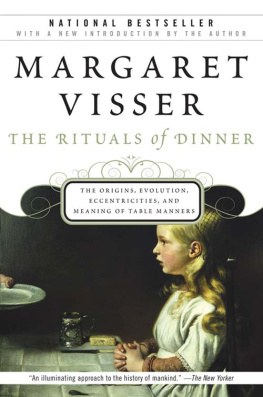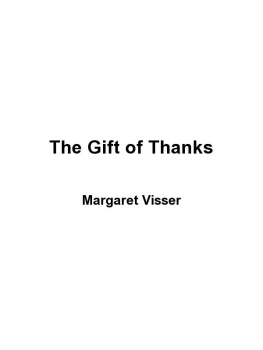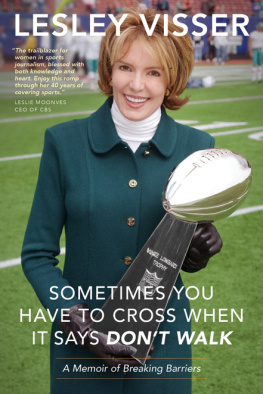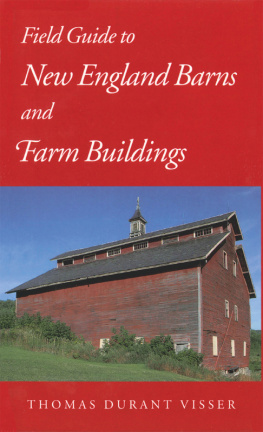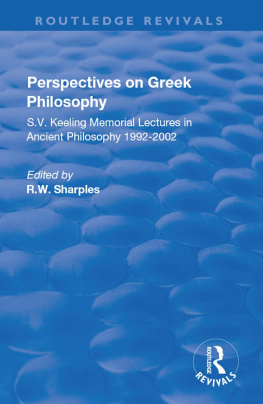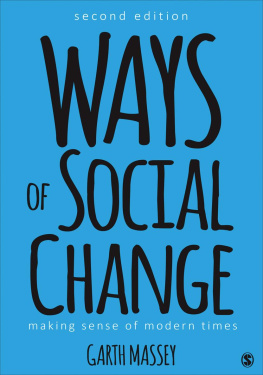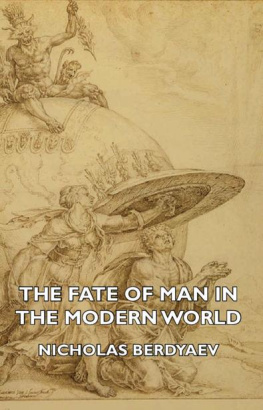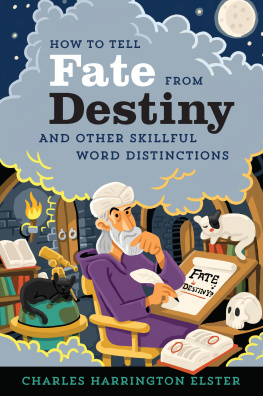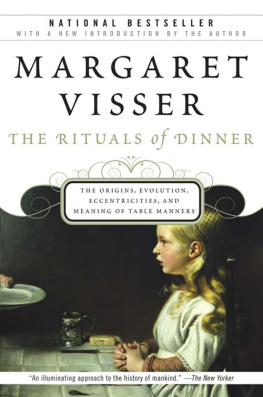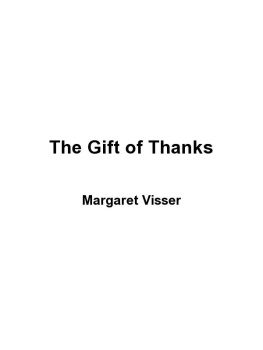Visser - Beyond Fate
Here you can read online Visser - Beyond Fate full text of the book (entire story) in english for free. Download pdf and epub, get meaning, cover and reviews about this ebook. City: Toronto, year: 2002;2014, publisher: House of Anansi Press Inc.;Perseus Books Group, genre: Home and family. Description of the work, (preface) as well as reviews are available. Best literature library LitArk.com created for fans of good reading and offers a wide selection of genres:
Romance novel
Science fiction
Adventure
Detective
Science
History
Home and family
Prose
Art
Politics
Computer
Non-fiction
Religion
Business
Children
Humor
Choose a favorite category and find really read worthwhile books. Enjoy immersion in the world of imagination, feel the emotions of the characters or learn something new for yourself, make an fascinating discovery.

- Book:Beyond Fate
- Author:
- Publisher:House of Anansi Press Inc.;Perseus Books Group
- Genre:
- Year:2002;2014
- City:Toronto
- Rating:5 / 5
- Favourites:Add to favourites
- Your mark:
- 100
- 1
- 2
- 3
- 4
- 5
Beyond Fate: summary, description and annotation
We offer to read an annotation, description, summary or preface (depends on what the author of the book "Beyond Fate" wrote himself). If you haven't found the necessary information about the book — write in the comments, we will try to find it.
In spite of modern ideals and achievements in the area of freedom and choice, people today are often afflicted with a sense that they cannot change things for the better. They feel helpless, constrained, caughtin a word, fatalistic. Beyond Fate, Margaret Vissers 2002 CBC Massey Lectures, examines why.
Visser: author's other books
Who wrote Beyond Fate? Find out the surname, the name of the author of the book and a list of all author's works by series.
Beyond Fate — read online for free the complete book (whole text) full work
Below is the text of the book, divided by pages. System saving the place of the last page read, allows you to conveniently read the book "Beyond Fate" online for free, without having to search again every time where you left off. Put a bookmark, and you can go to the page where you finished reading at any time.
Font size:
Interval:
Bookmark:
ALSO BY MARGARET VISSER
Much Depends on Dinner
The Rituals of Dinner
The Way We Are
The Geometry of Love
The Gift of Thanks
Margaret Visser

Copyright 2002 by Margaret Visser
and the Canadian Broadcasting Corporation
All rights reserved. No part of this publication may be reproduced or transmitted in any form or by any means, electronic or mechanical, including photocopying, recording, or any information storage and retrieval system, without permission in writing from the publisher.
Distribution of this electronic edition via the Internet or any other means without the permission of the publisher is illegal. Please do not participate in electronic piracy of copyrighted material; purchase only authorized electronic editions. We appreciate your support of the authors rights.
This edition published in 2010 by
House of Anansi Press Inc.
110 Spadina Avenue, Suite 801
Toronto, ON, M5V 2K4
Tel. 416-363-4343
Fax 416-363-1017
www.anansi.ca
LIBRARY AND ARCHIVES CANADA CATALOGUING IN PUBLICATION
Visser, Margaret, 1940
Beyond Fate / Margaret Visser.
(CBC Massey lecture series)
Includes bibliographical references.
eISBN 978-0-88784-846-9
1. Humanities I. Title. II. Series.
AC8.V46 2002 001.3 C2002-9034012-4
Cover design and photography: Bill Douglas

We acknowledge for their financial support of our publishing program the Canada Council for the Arts, the Ontario Arts Council, and the Government of Canada through the Canada Book Fund.
for Megan and Miriam
in my nightly visions the mysterious precept, Upward, not Northward, haunts me like a soul-devouring Sphinx.
Edwin Abbott Abbott, Flatland
DRAWING A LINE
ONE OF THE PROUDEST ACHIEVEMENTS of modernity is its investment in freedom of every kind, personal, moral, and economic. At our most hopeful and most arrogant we feel that being modern means having arrived at a point where constraint can be routed, or at least reduced as far as possible. Overweening we may be about this, but we do, in the cultures of the Mediterranean, Europe, America, and their derivatives, have reason to be respectful of the advances made in achieving freedom, beginning with the abatement of fate, and also of chance, disorder, and randomness. For more than two thousand years we have fought for freedom from fate, and in many ways we have attained it. However, we seem, in important respects, now to be letting that freedom slip from our grasp. Fatalism and submission to chance, within modernity itself, is at present gaining ground. We are falling back into fate. In order to consider how and why this is happening, I want to look at the assumptions that derive from ancient metaphorical models of fate images that are very much with us today.
Metaphors occur constantly in our speech, even if we are not being especially poetic. You look luscious, we might say; or, Im a chocoholic; or, Thebottom line is Moribund phrases, or at least blunted by use as all of these are, they still reveal attitudes of mind in these cases, the desire to consume, even if the item is another person; an acceptance that greed, while naughty, is not only nice but lightly to be accepted as addictive (addictive itself now has a clichd sense, meaning merely desirable or favourite); and a belief that the deepest decisions in life are a matter of totting up advantages and disadvantages as though they were figures in a sum, with the total as the bottom line. Metaphors make connections between things not normally thought of in the same breath; being vivid and concrete, living metaphors arouse attention. They entertain; they give us images with which to think. But just because they can be pleasant and useful, metaphoric models can deceive; if carelessly used, they can unobtrusively, and therefore insidiously, lead our thinking astray.
For example, for hundreds of years people have kept chickens in coops or allowed them to run free near their houses; the birds were constantly under the eyes of their owners. People reflected upon the behaviour of chickens and then decided that it resembled that of human beings in various respects. Henpecking was interesting a phenomenon that could be related to human bullying. So was the fact that cocks never hens ruled the roost. They crowed; hens merely clucked. Is it not the case, then, that men ought to speak up and women ought to keep quiet?
Once the hen-run had become a self-evident metaphoric model for human groups and families, the behaviour of chickens could reflect back what had been projected onto it, so as to reinforce human conventions and social prejudices. A Victorian gentleman, like a rooster, ruled his household. Again like a cock, he often felt it to be his right to take his pick from among his female servants for sexual favours. A worthy wife was not only quiet, modest, submissive, and thrifty, but also in need of protection and as easily pleased as a barnyard hen. And so forth.
The phrase the survival of the fittest was first used by the social theorist Herbert Spencer to describe the social and economic process in which weak rivals are eliminated by strong ones in the course of commercial competition. Existing social hierarchies were, he believed, natural and hence immutable. In editions of On the Origin of Species subsequent to the books first appearance in 1859, the phrase was taken up by Charles Darwin and applied to his theory of evolution by natural selection.peoples resources is validated as natural and, therefore, inevitable.
Although Karl Marx saw clearly that Darwin was projecting social perceptions onto the animal world, he nevertheless thought that Darwins theory of conflict as an evolutionary principle confirmed his own view of class conflict as the key to social change. All this occurred because of the reading into emergent probabilities in nature a metaphor that had been derived from social exploitation. Nor has social Darwinism gone away. It has been revived recently in an especially aggressive guise, even as hard capitalism finds itself once again the king of the castle, all opposition apparently routed.
We have, then, to watch our metaphors. This is not to say, however, that we should get rid of the practice of creating and using them. For metaphors partake of art; they make people see what is being talked about. A metaphor can put an interlocutor right inside the authors mind, making the reader or listener active and complicit in the process of communication. Metaphors make writing and talking interesting. The word interest originally meant is among:inter-est. Consider Shakespeares lines:
And this our life, exempt from public haunt, finds tongues in trees, books in the running brooks, sermons in stones, and good in every thing.
Some flat-footed editor (or perhaps a tired actor) is said to have corrected these lines, which he perceived as being merely mixed up. Leaves in trees, he insisted, stones in the running brooks, and sermons in books. How obvious, how flat, can you get? No brightness there no life, no interest. And therefore, no insight. Shakespeare makes us feel that the world is a totality, all of it interconnected; his poetry compels us to join him in seeing the connections. Common sense, which here severs the links, also denies us the insight.
Having heavily subscribed to the use of metaphors and metaphorical models, and having delivered a warning about them, I want in these chapters to consider a set of interlocking metaphors, a metaphorical model, ancient but still ubiquitous, with an influential reach of which we are only rarely fully conscious. In these metaphors, time is expressed in terms of space. Spatialized time then encourages us to see events as inevitable, as fated.
Next pageFont size:
Interval:
Bookmark:
Similar books «Beyond Fate»
Look at similar books to Beyond Fate. We have selected literature similar in name and meaning in the hope of providing readers with more options to find new, interesting, not yet read works.
Discussion, reviews of the book Beyond Fate and just readers' own opinions. Leave your comments, write what you think about the work, its meaning or the main characters. Specify what exactly you liked and what you didn't like, and why you think so.

